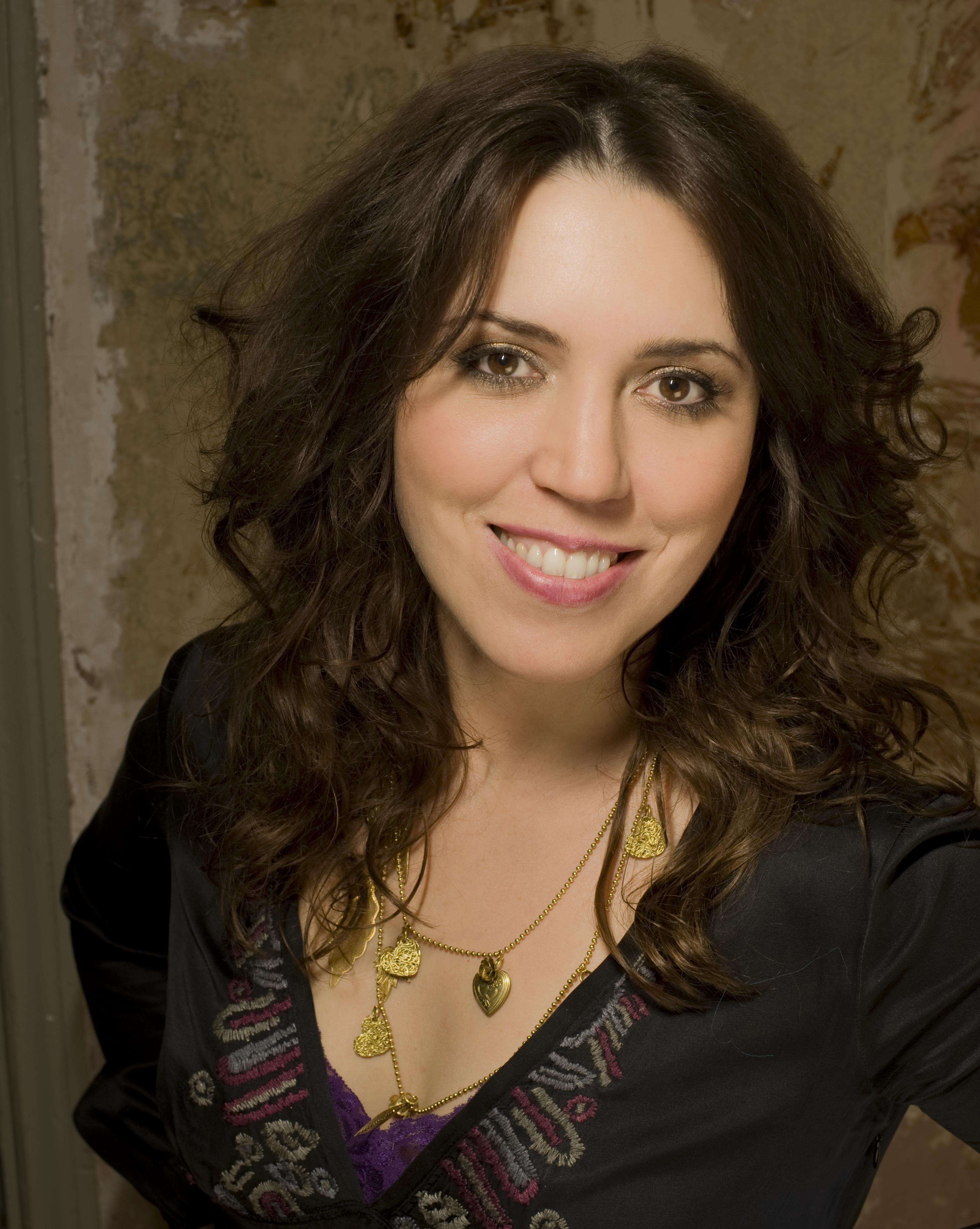|
Back
Quick Performance Ends in a Draw Houston
Jones Hall
03/04/2011 - & March 5, 6 2011
Joaquín Turina: Danzas fantásticas, op. 22
Sergei Rachmaninoff: Rhapsody on a Theme of Paganini, op. 43
Wolfgang Amadeus Mozart: Symphony No. 40 in G Minor, K. 550
Gabriela Montero (piano)
Houston Symphony Orchestra, Juanjo Mena (conductor)

G. Montero (© Colin Bell)
An orchestra's behavior when a guest conductor walks toward the podium speaks volumes. It was clear when Juanjo Mena stepped forward to make his Houston Symphony debut that he and the orchestra had formed a warm connection, and the bond set the stage for an exciting evening of music making. Sadly, the resultant concert simply did not add up. Mena had an overall excellent control of the HSO, but the overall design of his program and unconvincing tempo choices, exacerbated be an uninvolved piano soloist in Gabriela Montero (also in her HSO debut) and some sour wind intonation on the first half the concert, left this listener less than satisfied.
Turína's fluffy Danzas fantásticas are troublesome as an opener. The work is simply too long and variegated, both in mood and quality, to fill in for the more appropriate overture. As if to downplay this, Mena brought the tempos of the three movements as close as possible to each other. The central Ensueño was a good deal too swift. Mena failed to capture any of the Basque zortziko mystery or, more importantly, the poetic content of the text that inspired the movement. This was no "lament of a soul helpless under the weight of bitterness," and the lilt of the fragile 5/8 melody seemed artificial rather than genuine. The outer movements were played quite well, but again kept too tightly in check to generate the excitement that they should, especially in the closing Andalucian "Orgía," where the joy that is supposed to flow from bottomless glasses of incensed wine found no sonic equivalent.
Rachmaninoff's justly popular Paganini Rhapsody is always welcome on a program, but seemed odd as the sole contribution from a high profile soloist making a debut performance. Liszt's Totentanz or Franck's Symphonic Variations (or maybe even Fauré's Ballade) seem like such natural pairings with the piece, but the Rachmaninoff seemed programmed on this concert solely as a vehicle to introduce Gabriela Montero's formidable improvisation on a tune suggested by the audience (tonight's choice: "Some Enchanted Evening," viewed through the prism of Bachian counterpoint and Latin dance).
Montero appeared completely uninvolved in the Rachmaninoff, sitting idly with nary a shift in posture or expression as her hands capably leapt across the keyboard. Tempos, especially in the first third of the piece, were so fast that the many wonderful moments of interplay between soloist and orchestra, while capably played, were brushed over and turned into insignificant filler. One longed for the whimsy that Nathan Milstein or James Ehnes brings to Paganini's violin theme, or the excitement that marks pianists like Mikhail Pletnev's recorded performances of Rachmaninoff's reworking, taken at quick enough tempos that still allow detail to be heard.
The famous eighteenth variation saw Montero assimilating some of the lyricism that would mark her attempts to correctly grasp the showtune before her improvisations on it began, but the variation's brought about an underwhelming sonic buildup from soloist and orchestra. By this point the performance was so unconvincing and dispassionate that there was little that could save it. Montero certainly has the technique to play this score at virtually any tempo (as do handfuls of fresh faced conservatory students), but just because you can play it faster doesn't mean you should. Mena and the orchestra kept up, but often just barely, and the many wind solos peppering the score were uncharacteristically slipshod.
It is likely pointless to try to find the logic behind the Turína-Rachmaninoff-Mozart progression, but we were fortunate to hear something from Amadeus, and his music brought about the best performance from all involved. Mena's tempos were more thoughtful throughout, but the piece's Sturm und Drang edges were smoothed over, especially in the outer movements. String articulations were precise but inanimate, and the many moments of contrapuntal dialogue were well coordinated but lacking in overall direction. On the plus side, wind solos, notably the many duos between flute and bassoon, were flawless and showed glimpses of the trademark HSO sheen that seemed absent for much of the evening. The welcome return of risers to the orchestra layout enhanced these moments, bringing improved balance and a more interesting visual and sonic dimensionality to the concert. The Technicolor endings of the Turína and Rachmaninoff works made the conclusion of the Mozart seem quite underwhelming, and this was overall a solid and polite, though not entirely memorable, reading of this masterpiece.
Marcus Karl Maroney
|